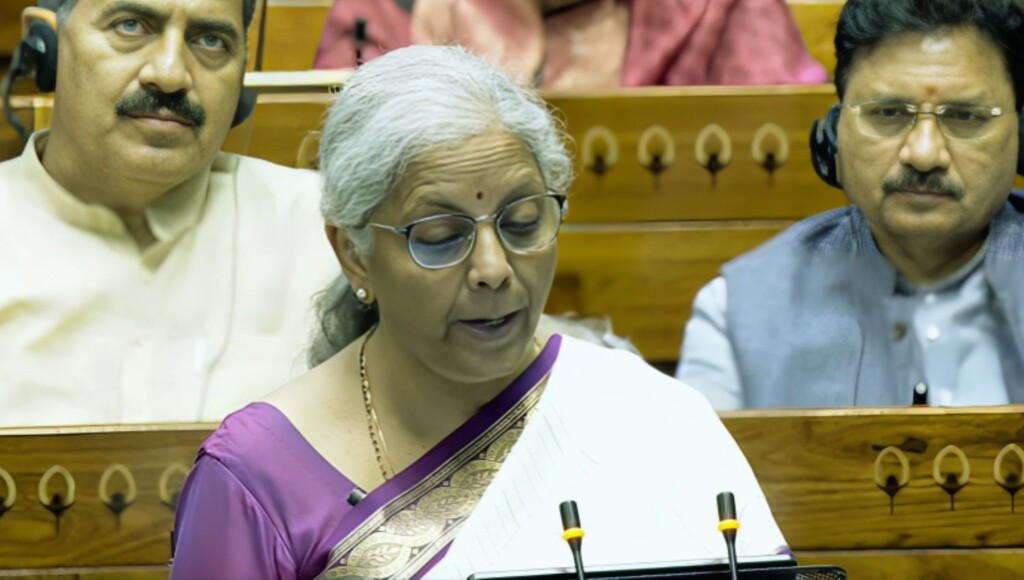In the Monsoon Session of Parliament, Finance Minister Nirmala Sitharaman unveiled the Union Budget 2024-25, marking her achievement as the first finance minister to deliver seven consecutive budget speeches. This milestone surpasses the record set by former Prime Minister Morarji Desai, who presented six consecutive budgets during his tenure as finance minister from 1959 to 1964.
In her seventh budget presentation, Nirmala Sitharaman highlighted crucial areas for economic development and opportunity creation. These priorities encompassed enhancing productivity and resilience in agriculture, promoting employment and skill development, and bolstering services. “India stands out as a beacon of economic growth amidst global policy uncertainties, and will continue to do so in the foreseeable future,” Sitharaman stated during her Budget speech in Parliament. “This budget places special emphasis on employment, skill development, support for MSMEs, and the middle class.”
In this article, we will examine the provisions targeting employees and individuals seeking employment in the Union Budget 2024-25.
Hike in standard deduction
The finance minister, Nirmala Sitharaman, revealed in the budget that the standard deduction for salaried employees will be raised from ₹50,000 to ₹75,000 under the new income tax regime, marking a 50% increase. The standard deduction is a fixed amount deducted from an employee’s total annual salary before the income tax rate is applied. It is important to note that there have been no adjustments made to the standard deduction in the old tax regime.
New income tax slabs
The income tax slabs have been modified as per the announcement made by Nirmala Sitharaman in her budget speech for the current fiscal year.
- Up to ₹3 lakh: 0%
- ₹3 to ₹7 lakh: 5%
- ₹7 lakh to ₹10 lakh: 10%
- ₹10 lakh to ₹12 lakh: 15%
- ₹12 lakh to ₹15 lakh: 20%
- Above ₹15 lakh: 30%
The announcement stated that under the new tax regime, a salaried employee could potentially save up to ₹17,500/- in income tax due to the recent changes.
Increase in tax deduction on family pension
Sitharaman revealed a proposal to raise the family pension deduction amount in order to improve the financial security of salaried individuals and pensioners. The proposed increase would raise the deduction amount to ₹25,000 from ₹15,000 under the new tax regime. “The finance minister stated that the enhancement of the deduction on family pension for pensioners will benefit around 4 crore salaried individuals and pensioners,” she added.
One month wage to all new entrants in formal sector
Nirmala Sitharaman also declared that the government will grant a one-month salary to individuals who are newly joining the workforce in all formal sectors. The finance minister mentioned that the government will transfer the amount directly to the employees as their provident fund contribution.
The prime minister’s employment and skilling package included the announcements. Along with the direct benefit transfer, the government revealed that incentives would be given to employees and employers based on their EPFO contribution during the initial four years of employment. Moreover, it was stated that employers would receive reimbursement of up to ₹3,000 per month for two years towards their EPFO contribution for each new employee.
Internship in top 500 companies
During her budget speech on Tuesday, the finance minister announced the government’s plan to introduce an internship program for young people in 500 leading companies. The program aims to benefit 10 million individuals over the course of five years. Additionally, participants will be provided with a monthly internship allowance of ₹5,000 and a one-time assistance of ₹6,000.
As the fifth initiative within the Prime Minister’s program, the government is set to introduce an extensive program aimed at offering internship placements in 500 leading companies to one crore young individuals over a span of five years. These participants will have the chance to immerse themselves in a genuine business setting, explore various professions, and discover potential job opportunities,” she announced during the parliamentary session. “Furthermore, companies will be required to cover the expenses related to training as well as 10% of the internship costs using their CSR funds,” she further explained.
